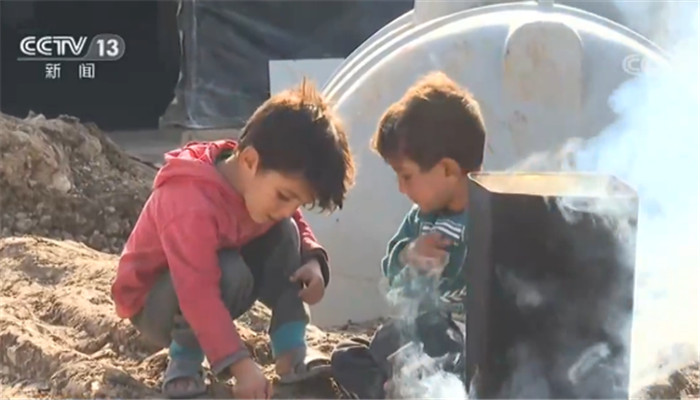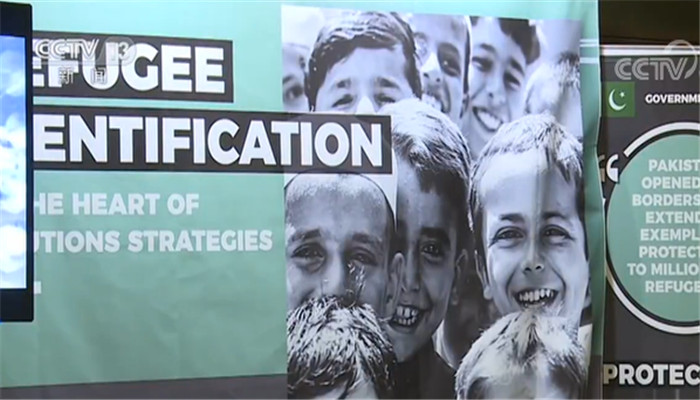Dilemma? The number of refugees in the world has reached a record high in nearly 70 years, and this figure is surprising.
CCTV News:The first Global Refugee Forum was held in Geneva on the 16th. On the same day, UNHCR held a press conference, calling on the international community to pay more attention to the refugee problem, discuss solutions together, and take measures to strengthen the protection of refugees.
According to the latest statistics released by UNHCR, at present, more than 70.8 million people in the world have been forced to flee their homes, which is 20 times that of 20 years ago and the highest in nearly 70 years. This includes 25.9 million refugees, more than half of whom are minors under 18.

Dominique Hyde, Director of the External Relations Department of UNHCR: "There are many reasons why people flee their homes, such as conflicts, wars and climate change. I think the most important thing is that no one will take the initiative to choose to flee. Everyone wants to stay in their hometown and continue to work with their families. "

Dominique Hyde said that solving the refugee problem needs the support of the international community, and the first Global Refugee Forum will increase assistance and support for refugees in terms of housing, water, clean energy and financial services.

Dominic Hyde: "The Global Refugee Forum is a historic moment. We look forward to bringing refugees, all sectors of society and the United Nations together to discuss how to solve the refugee problem."
[Annual Global Trends Report] Four Interpretations of Global Refugee Reports
In June this year, UNHCR released its annual Global Trends report, which made statistics and interpretation on the situation of refugees and displaced persons around the world.
According to UNHCR’s Global Trends report, the main reasons for the increase in the number of refugees around the world are political conflicts, wars or persecution. By the end of 2018, the number of refugees who fled other countries for these reasons was about 25.9 million, an increase of 500,000 over 2017.

From the source of refugees, refugees from Syria, Afghanistan, South Sudan, Myanmar and Somalia account for 67% of the total number of refugees in the world. There are 6.7 million refugees in Syria, 2.7 million in Afghanistan, 2.3 million in South Sudan, 1.1 million in Myanmar and 900,000 in Somalia.

The Global Trends report also pointed out that more than half of them are minors under the age of 18. Many of them are unaccompanied and alone.

The most unexpected thing about the Global Trends report is that among the countries receiving refugees in the world, the top countries are not western developed countries such as Europe and America. Among them, western high-income countries receive 2.7 refugees per 1,000 people on average, middle-and low-income countries receive 5.8 refugees per 1,000 people on average, and the poorest countries receive one-third of the world’s refugees.
[News Watch] Where will the global refugee problem go?
According to UNHCR figures, by the end of 2018, only 0.5% of the 25.9 million refugees in the world had been resettled in other countries. On the one hand, the scale of refugees caused by war and other reasons is increasing, on the other hand, Western countries such as Europe and the United States are tightening their refugee policies. Where the global refugee problem will go is a serious problem that the international community must face squarely.

At present, UNHCR is helping refugees from countries of origin in West Asia and North Africa to reach European countries such as Italy through emergency transit mechanism. However, since the launch of this mechanism in 2017, only 5,100 people have benefited, which is only a drop in the bucket compared with the huge number of refugees.

According to UNHCR data, Germany is currently the largest refugee receiving country in Europe, with a total of about 1.1 million people, but this figure has not increased significantly compared with 2015. According to German media reports, about two-thirds of refugee applications were rejected by the German government this year. European countries such as Greece, which are at the "front line" of refugee reception, have also tightened their asylum laws.

Some experts said that the overall economic downturn in Europe, coupled with the rise of populist forces, xenophobia and conservatism have become the mainstream of European discourse, which has caused the current "self-centered" political atmosphere and led to the tightening of refugee policies in European countries.

Outside Europe, the United States has lowered the scale of refugee reception for three consecutive years, which has increased the pressure of global reception. According to the November 4th report of Time Magazine, the upper limit of accepting refugees in the United States will be reduced to 18,000 in fiscal year 2020. The UNHCR said that the US decision not only put thousands of refugees at risk, but also released negative pressure signals to other countries.